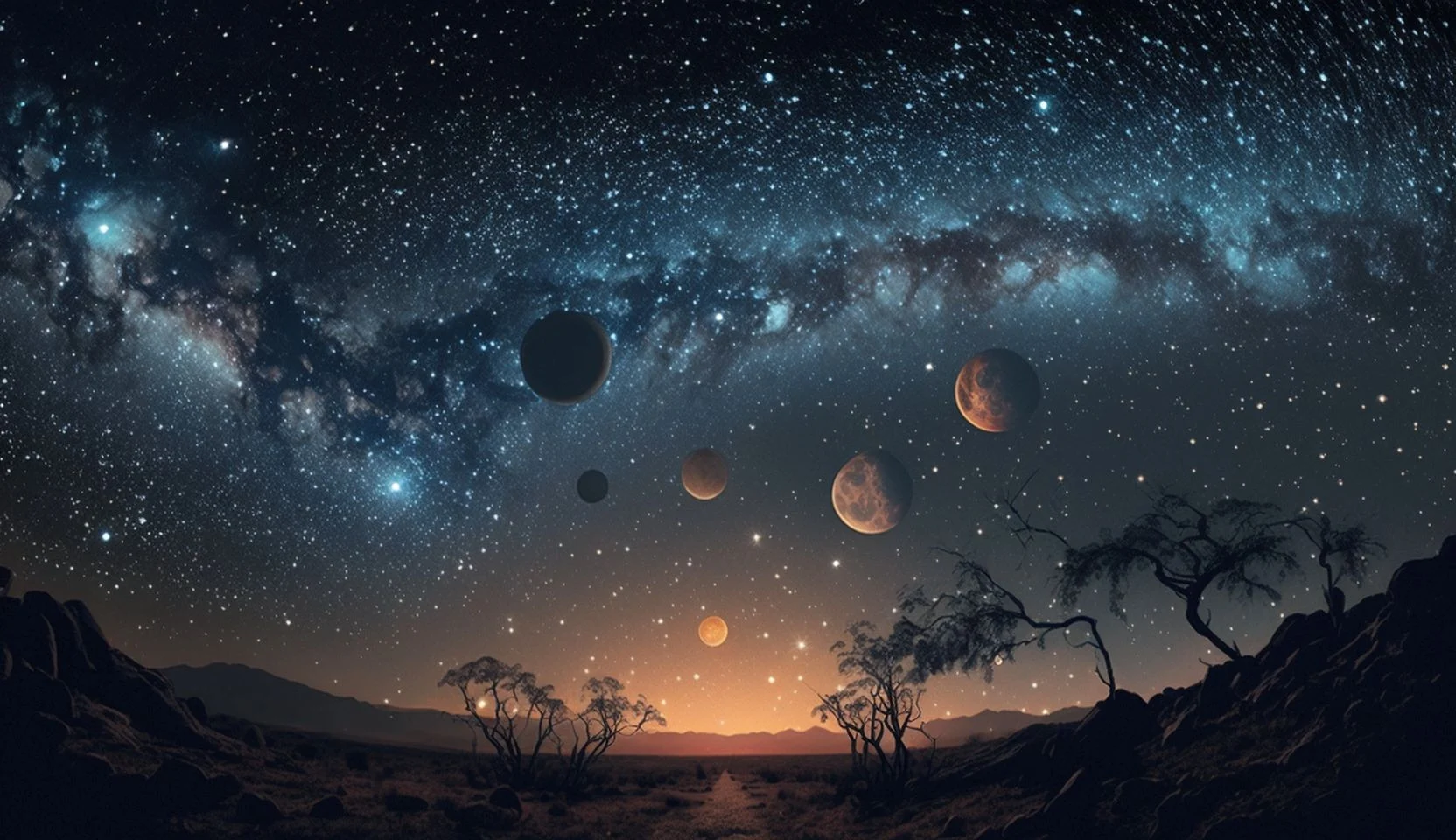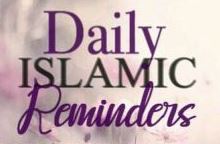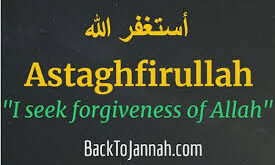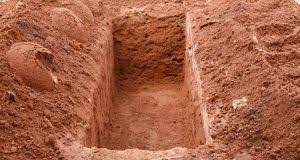They say that reading biographies is perhaps the best way to learn real life lessons. That is because a biography is a record of practice. Of what worked and what didn’t. The life of Muhammad is perhaps one of the most well documented in human history. Having said that one may ask why his life and all the detail are important at all? I am not speaking from the perspective of a Muslim for whom to study the life of Muhammad and to live his life in accordance with it, is a religious requirement. I am asking this from the perspective of a neutral reader, Muslim or not, who is looking for biographies to read. The answer lies in the facts related to his life which are public knowledge. Here was someone who in a period of 23 years, took his people from being the weakest, most despised and oppressed in their community to being the leaders and role models in the same community. And he did all that without lies, cheating, corruption, violence or bloodshed. My question is, ‘Would you like to know how to do that? Would you like to know how to bring about not incremental but transformational change in your society? Then read the life of Muhammad.’
In the words of J. Krishnamurty, ‘It is no measure of health to be well adjusted to a profoundly sick society.’ I don’t think there is anyone, including the 1% who appear to have it all who will disagree that we are very sick. Humanity is sick. The earth is sick. We are all very sick. This is no longer an academic issue for people to write scholarly papers about. It is something that we, the people of the world, need to address recognizing it as the dire emergency that it is. If we don’t, the clock would be ticking backwards for us and fast. And the time is very close where we would have to make our own position as the inhabitants of this earth; not its owners as we like to believe; completely untenable. We need action. And we need it now.
Call it a strange coincidence but 5th Century Makkah was a microcosm of our global capitalist, pluralist, multicultural, multiracial society. Let me describe the Makkah that Muhammad was born into, grew up and lived in, until the age of 50. That is a long time for someone to spend in one town but that was what Muhammad did.
Makkah was a town with one single claim to fame – the Ka’aba. This is the House of Allah built by 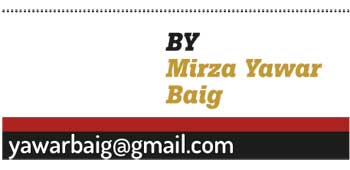 Ibrahimu (Prophet Abraham) and was a place of pilgrimage from time immemorial. Access to the Ka’aba was open to anyone who wanted to come. The environs of the Ka’aba were declared a sanctuary with all killing, hunting and fighting banned within that sanctuary. This was the main reason why Makkah developed as a town, because it was a safe haven for everyone from any of the many frequently warring tribes.
Ibrahimu (Prophet Abraham) and was a place of pilgrimage from time immemorial. Access to the Ka’aba was open to anyone who wanted to come. The environs of the Ka’aba were declared a sanctuary with all killing, hunting and fighting banned within that sanctuary. This was the main reason why Makkah developed as a town, because it was a safe haven for everyone from any of the many frequently warring tribes.
Another similarity that 5th century Makkah had with our modern society is that it was a world of business. Businessmen were its leaders and they ran the town. Acquisition of wealth was the primary concern. Makkan society was materialistic based on a free market economy. Markets were not regulated by any central authority. Traders charged the best price they could get, hoarded in times of scarcity and sold at great profit and bought goods from as far afield as Syria and Yemen to sell in Makkah. Makkah being a sort of an aggregator of people from all of Arabia, was a great seller’s market where high prices could be commanded as goods sold in Makkah were simply not available in any other part of Arabia. That is how Makkan traders became its nobility and created a sort of oligarchy. You can draw similarities with our capitalist society today and see how close 5th century Arabia was to most of our 21st century world.
Makkah was also a multicultural and pluralistic place as all centres of trade tend to be. That is because if you want to promote trade you must make it easy and safe for people from multiple origins, belief systems and cultures to coexist peacefully. All that is good for business. And so it was. In Makkah, the local people mostly worshipped idols but Jews, Christians, Magians all lived in Makkah, each practicing his or her own religion without any interference from anyone else. Very much like what happens in most Western countries today. And for the same reason; it is good for business.
“I don’t think there is anyone, including the 1% who appear to have it all who will disagree that we are very sick. Humanity is sick. The earth is sick. We are all very sick”
The reason I’ve spent so much time on drawing a picture of Makkan society of the 5th century showing its similarities to our 21st century society is because I want to hypothesize that because Muhammad despite being a person with almost no resources, support or political power, could bring about a complete transformation of his society, then we have reason to hope that the methods he used can work today for us as well.
To quote Alphonse de Lamartine, in his book, ‘History of Turkey’ who said, “If greatness of purpose, smallness of means and astonishing results are the three criteria of a human genius, who could dare compare any great man in history with Muhammad?”
Muhammad didn’t focus on bringing about any materialistic changes in the lives of people. The changes he brought about ideological, ethical and moral, changed not only their lives but also changed the structure, laws, freedom and behavior of Arab society. Muhammad brought about changes in the way people thought, in their ideals and benchmarks which led to a change in what they considered important, which in turn led to a change in their behaviour which brought about a change in society. As they say, it all begins at the top; in the mind. Once we change our attitude,behaviour changes which lead to perceptible results in and around us. All change must begin with us internally, with how we view the world, what we want from it, what we find satisfaction in and what we are prepared to do (and not do) to get it. We need to define the meaning of a ‘good life’, and be clear about what investment we are prepared to make, to get it.
“He didn’t say, ‘Muslim neighbour’. He said, ‘Neighbour.’ In Islam, there is no distinction between Muslims and non-Muslims in respect of the rights of citizenship”
I mention this here because in our race today, to garner all resources for oneself without a thought about others, we have created a society that is crying out in pain and grief. It is inconceivable to imagine that the resources of the world can possibly be concentrated in the hands of so few, but as they say, ‘fact is stranger than fiction’. I can imagine the derision if any author dared to suggest that 62 people would own 50% of global assets and the rest of the world would watch silently. But that is not fiction. That was fact. For perspective, let me state that an omnibus has 65 seats excluding the driver’s seat.
https://www.theguardian.com/business/2016/jan/18/richest-62-billionaires-wealthy-half-world-population-combined
What was the change that Muhammad wrought in his society?
In my view, there were three major principles that he promoted:
1. Accountability to Allah from whom nothing is hidden
2. Truthfulness
3. Spreading goodness all around
This was the essence of the religion he brought, Islam. That was why he said, ‘The best of you is the one who is the most beneficial to all people.’
Let us look at each of these principles in the life of Muhammad briefly.
1. Accountability to Allah from whom nothing is hidden
What makes a mistake a crime is that the criminal knows that what he is doing is illegal, immoral and wrong. People don’t commit sins, oppress others, commit violence or evil because they don’t know the difference between right and wrong. They do them because they think they can get away with them. Muhammad taught that this belief was a fallacy because no matter what we think, speak or do is known and seen by our Creator to whom we will return and to whom we must give an account of what we did.
Muhammad taught that good and evil were absolute values. They don’t depend on who did them or who these are applied to. He taught that human values apply to all humans, not only to Muslims. On the contrary Muslims have an additional responsibility to act according to the values of their religion because they believe in Muhammad and in Islam.
He said to his daughter Fatima, ‘O! Fatima, don’t think that you will be favoured by Allah because you are the daughter of His Messenger. You will stand before your Creator on the basis of your own deeds.’
2. Truthfulness
Muhammad was known among his people even before he started preaching Islam as As-Sadiq ul Ameen – The Truthful and Trustworthy. And that is what he taught his followers; to be truthful in every aspect of life. Someone asked him, ‘Is it possible that a Muslim may be a coward?’ He replied, ‘Yes.’ They asked, ‘Is it possible that a Muslim may commit adultery?’ He replied, ‘Yes.’ They asked him, ‘What is it that a Muslim cannot possibly do?’ He replied, ‘A Muslim cannot tell a lie.’
He taught that virtue and vice were absolute values. They are not relative to your personal worth, religion, race or anything else. Right and wrong don’t depend on who do them. That is why truthfulness is the basis of all goodness. He held himself to this value of truthfulness to such an extent that when he was migrating to Madina from Makkah and his life was threatened, he still had valuables that his enemies had entrusted him with. Before he left, he gave them to his cousin Ali bin Abi Talib and instructed to return them to their owners. What can you say about the truthfulness of someone who was trusted by his own enemies?
3. Spreading goodness all around
Muhammad said to his people, ‘The best of you is the one who is best to his neighbour.’ He didn’t say, ‘Muslim neighbour’. He said, ‘Neighbour.’ In Islam, there is no distinction between Muslims and non-Muslims in respect of the rights of citizenship.
He said, ‘A Muslim is responsible for the welfare of his neighbours, up to seventy houses on either side of his house.’ Imagine a society that is based on this value of responsibility to one’s neighbours.
On another occasion, someone asked him how he could determine if he was a good man. Muhammad said to him, ‘If your neighbour says that you are good, then you are good. If your wife says that you are good, then you are good.’
Finally, on the issue of women’s rights which everyone today accuses Islam of denying. Women in Muhammad’s time were treated as property owned and inherited by men, to be used and abused at will. Women had no rights at all. Many Makkan people buried their newborn daughters to escape the cost of raising a girl child. Sounds familiar in today’s context?Let us see what Muhammad gave women in the 5th century.
1. Right to own property and income and to keep whatever she earns without sharing anything of it.
2. Right to be paid to bring up her own children including nursing them.
3. Right to marry anyone of their choice.
4. Right to divorce the husband even without his consent and to have this written in the marriage contract.
5. Wife need not serve his parents or family at all.
6. Right to receive the Mehr (bridal gift) and not to pay any dowry at all.
7. Right to retain the Meher if she gets divorced. It remains her property to do with as she likes.
8. Right to inherit from her parents, children and husband.
9. Wife has a right in the husband’s property and income. It is the duty of the husband to support the wife unconditionally. He has no right in her income or property, even if it was purchased with his money.
The reality is that to this day many of these rights are denied to women in so-called advanced countries which don’t operate under Islamic law.
In conclusion, I would like to reiterate that Muhammad left for us all, Muslim or not alike, a way of life, a code of conduct and behaviour that is as applicable today as it was in his time. It is my contention that if people followed his way, then we would be able to cure the sickness of selfishness, cruelty and indifference that we are plagued with and create a society based on compassion, mutual responsibility and accountability to Allah from whom nothing is hidden.
Now, how’s that for a new world order?
Post Disclaimer | Support Us
Support Us
The sailanmuslim.com web site entirely supported by individual donors and well wishers. If you regularly visit this site and wish to show your appreciation, or if you wish to see further development of sailanmuslim.com, please donate us
IMPORTANT : All content hosted on sailanmuslim.com is solely for non-commercial purposes and with the permission of original copyright holders. Any other use of the hosted content, such as for financial gain, requires express approval from the copyright owners.
 Sri lanka Muslims Web Portal Sri Lanka Muslims News Center
Sri lanka Muslims Web Portal Sri Lanka Muslims News Center
 Donate
Donate